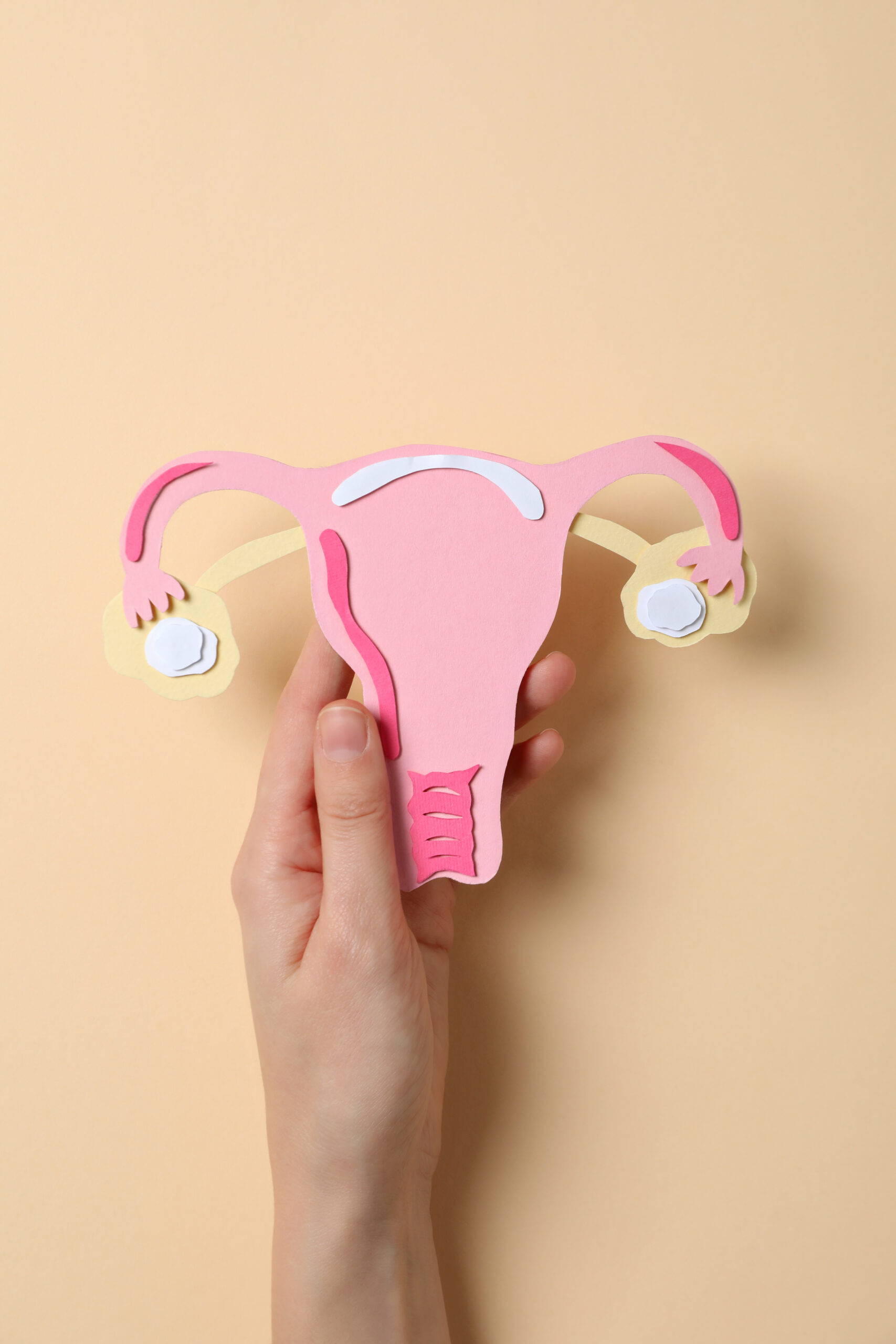Fibroid Uterus
Home
Fibroid Uterus
Natural Cure for Uterine Fibroids: Ayurvedic Approach
Uterine fibroids, also called leiomyomas, are non-cancerous growths in the uterus affecting women of reproductive age. They can cause heavy menstrual bleeding, abdominal pain, bloating, and fertility issues. Modern medicine often recommends surgery, but Ayurveda offers a natural cure for uterine fibroids, focusing on balancing hormones, improving digestion, and detoxifying the body.
Ayurvedic therapies, herbal remedies, dietary adjustments, lifestyle changes, and exercises work together to reduce fibroid size, relieve symptoms, and improve overall uterine health.
Why Fibroids Happen
From a modern perspective, fibroids occur when hormone-sensitive cells in the uterus grow abnormally. Estrogen dominance, insulin resistance, and poor metabolic function trigger this growth.

Causes of Fibroid Uterus
Fibroid formation happens due to multiple factors:
- Hormonal Imbalance: Excess estrogen and progesterone stimulate uterine tissue growth.
- Genetic Factors: Family history increases susceptibility.
- Poor Diet & Lifestyle: High-fat, processed foods, lack of exercise, and stress contribute.
- Vata & Kapha Imbalance (Ayurveda): Leads to impaired circulation and accumulation of toxins in reproductive tissues.
- Inflammation & Obesity: Chronic inflammation and weight gain may accelerate fibroid growth.
Symptoms include:
- Heavy or prolonged menstrual bleeding
- Pelvic pain or pressure
- Bloating and abdominal swelling
- Fatigue due to anemia
- Fertility problems
How People Suffer from Fibroid Uterus
- Physical Symptoms: Heavy menstrual bleeding, cramps, bloating, anemia, fatigue
- Reproductive Issues: Infertility, miscarriages, and difficulty conceiving
- Emotional Distress: Anxiety, depression, and low self-esteem due to chronic pain
- Lifestyle Impact: Difficulty performing daily tasks and reduced quality of life
A natural cure for uterine fibroids using Ayurveda addresses these issues holistically, helping women regain health and vitality.
Methods of Natural Cure for Fibroid Uterus
1. Ayurvedic Therapies
- Panchakarma: Detoxification therapies like Virechana (purgation) and Basti (medicated enemas) reduce Kapha and Ama.
- Herbal Medicines:
- Ashoka – strengthens uterus and reduces bleeding
- Shatavari – supports hormonal balance
- Lodhra – reduces inflammation
- Triphala – detoxifies and improves digestion
- Ashoka – strengthens uterus and reduces bleeding
- Uterine Massage (Abdominal oils): Using herbal oils like Bala or Ashwagandha oil improves circulation and reduces fibroid size.
2. Dietary Guidelines (Ahara)
Foods to Take:
- Leafy greens (spinach, kale, fenugreek)
- Whole grains and legumes
- Flax seeds, pumpkin seeds, sesame seeds (phytoestrogens)
- Turmeric, ginger, and garlic for anti-inflammatory effect
Foods to Avoid:
- Red meat, processed food, and fried snacks
- Excess sugar and refined flour
- Alcohol and caffeinated beverages
- Dairy in excess, which may increase Kapha
3. Lifestyle & Exercises (Vihara)
- Yoga poses like Supta Baddha Konasana, Bhujangasana, and Dhanurasana improve uterine circulation
- Daily walking or light cardio to maintain healthy weight
- Pranayama (Anulom Vilom, Bhramari) to reduce stress
- Avoid prolonged sitting and practice deep relaxation techniques
4. Modern Support & Medications
- Ayurvedic treatment can be complemented with herbal supplements for iron and vitamins
- In severe cases, modern medications may help regulate menstrual bleeding but Ayurveda focuses on holistic long-term care
How are fibroids treated from an Ayurvedic perspective ?
- The goal is to shrink fibroid size and manage symptoms (such as heavy bleeding or anemia).
- First, correct underlying causes (diet, lifestyle, hormonal balance).
- Use of internal herbal medicines and therapies tailored to the individual.
- Address concurrent conditions like anemia (if heavy bleeding is present).
- Integrative management combining counselling, therapeutic procedures, and Ayurvedic techniques is offered by specialized teams.
A natural cure for uterine fibroids using Ayurveda addresses these issues holistically, helping women regain health and vitality.
FAQ
- Women in the reproductive age group, especially between 30 and 40 years.
- Overweight or obese women have a higher risk.
- Hormonal influences (especially estrogen) tend to drive their growth.
- Fibroids may enlarge during pregnancy (when estrogen is higher) and often shrink after childbirth or menopause.
Fibroids can occur in different parts of the uterus:
- Within the uterine wall (intramural)
- Just beneath the inner lining (submucosal)
- On the external surface (subserosal)
- In the neck (cervical) portion of the uterus
When fibroids are small, they may not cause symptoms. But in symptomatic cases, the following may be experienced:
- Heavy or prolonged menstrual bleeding
- Painful menstruation
- Abdominal bloating or enlargement
- Backache
- Frequent urination (due to pressure on the bladder)
- Pain during intercourse
- Pain during bowel movements
- In rare cases: miscarriage, bleeding, premature labor, or infertility
- Hormonal imbalance (especially excess estrogen) is a major factor.
- During pregnancy, increased estrogen can make fibroids grow; after pregnancy or in menopause, fibroids may shrink.
- In Ayurveda’s view, excessive consumption of cold, heavy, or fried foods may disturb the three doshas, particularly Kapha and Vata, contributing to fibroid formation.
- Yes, in some cases fibroids may shrink after pregnancy or with hormonal changes (e.g., menopause).
- But symptomatic or large fibroids usually require targeted management.
- If menstrual bleeding becomes very heavy or prolonged
- If pelvic pain or pressure symptoms appear
- If symptoms like frequent urination or difficulty with bowel movements emerge
- If infertility or repeated miscarriages are experienced
